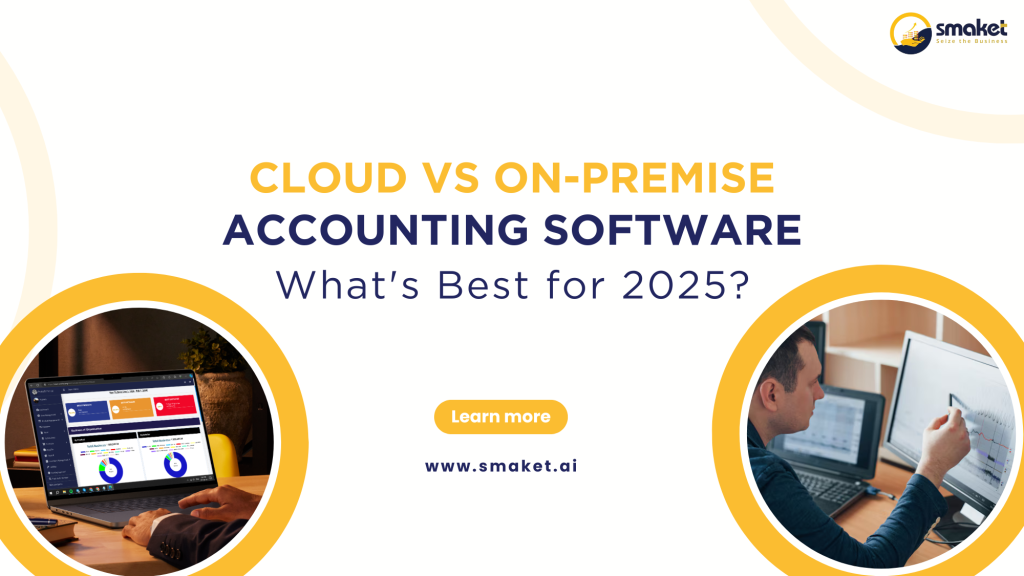As we move deeper into 2025, the way businesses manage their finances is more digital and flexible than ever. One of the key decisions facing companies today is choosing between cloud-based accounting software and on-premise accounting systems.
Both options have distinct advantages—and which is best for you depends on your business needs, size, and future goals. This article will help break down the differences so you can make the right choice for your financial operations.
What Is Cloud Accounting Software?
Cloud accounting software is hosted online, meaning you access it through a web browser or mobile app. Your financial data is stored in the cloud, and you can log in from any device, anywhere with internet access. Examples include Xero, QuickBooks Online, and FreshBooks.
What Is On-Premise Accounting Software?
On-premise accounting software is installed on computers or servers physically located in your office. It usually requires your own IT team to manage updates, security, and data backups. Examples include QuickBooks Desktop and Sage 50.
Key Differences Between Cloud and On-Premise
One of the biggest differences is accessibility. Cloud software allows you to work from anywhere, making it ideal for remote or hybrid teams. On-premise software typically limits access to specific devices or networks.
When it comes to cost, cloud software usually operates on a subscription basis—monthly or annually. On-premise solutions, on the other hand, require a higher upfront investment for licenses and hardware, but may offer lower long-term costs if well-managed.
Security is another key consideration. Cloud providers handle security, data encryption, and backups on their end. With on-premise systems, you’re responsible for protecting your own data, which can be an advantage if you need full control—but also a liability if resources are limited.
Updates are automatic with cloud platforms, keeping you on the latest version without lifting a finger. On-premise tools often require manual updates, which can be time-consuming and require IT support.
Scalability is also easier with cloud solutions. As your business grows, cloud software can grow with you. With on-premise, scaling often requires buying new hardware or licenses.
Pros and Cons of Cloud Accounting in 2025
Pros:
- Access from anywhere, anytime
- Automatic backups and updates
- Easy collaboration with accountants or team members
- Seamless integration with other business tools
- Ideal for remote and hybrid work environments
Cons:
- Requires a stable internet connection
- Subscription fees can add up over time
- Some businesses have concerns about storing sensitive data off-site
Pros and Cons of On-Premise Accounting in 2025
Pros:
- Full control over your data and security
- Can function without an internet connection
- One-time licensing can reduce long-term costs
- May better support highly customized or industry-specific needs
Cons:
- High upfront cost for software and infrastructure
- Requires in-house IT for maintenance and support
- Limited remote access and flexibility
- Manual updates and backups can be time-intensive
Trends to Watch in 2025
In 2025, cloud accounting is becoming the norm for small to mid-sized businesses due to its ease of use, flexibility, and scalability. AI features, automation, and app integrations are also making cloud tools more powerful than ever.
However, on-premise accounting software continues to be used in sectors with strict regulatory requirements—like government, defense, and healthcare—where control and compliance are critical.
So, Which Should You Choose?
Choose cloud accounting software if:
- You want remote access and real-time collaboration
- Your business is growing and needs flexible tools
- You prefer a lower upfront cost with ongoing updates
Choose on-premise accounting software if:
- You need complete control over your financial data
- You work in a regulated industry with strict compliance rules
- Your internet connection is unreliable or inconsistent
Conclusion:
The right Accounting Software in 2025 isn’t just about features—it’s about how well the system fits into your business workflow, budget, and future plans. While cloud solutions are gaining popularity for their convenience and agility, on-premise software still holds value for organizations with unique compliance or control needs.
Not sure which path is right for you? Reach out to a financial tech consultant or accountant who understands your industry and can guide you to the best fit.

